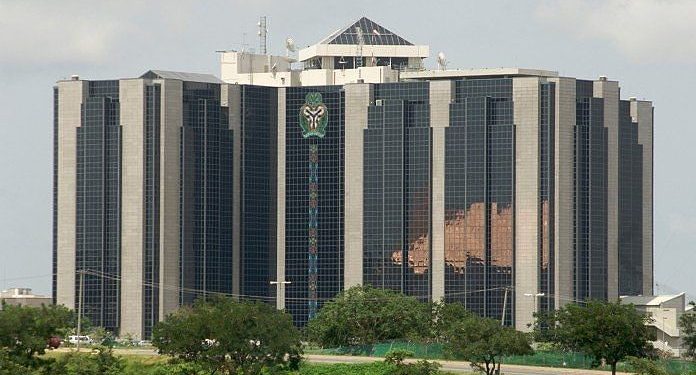The Central Bank of Nigeria (CBN) has disclosed that the Capital Adequacy Ratio (CAR) of commercial banks has improved from the 10.79% as at August 2018, to 15.26% as of December 2018.
CBN’s Deputy Governor, Financial System Stability Directorate, Mrs. Aishah Ahmad, disclosed this in her personal comment in last month’s Monetary Policy Committee (MPC) meeting’s communiqué.
She attributed the development to recent promissory notes issued by the federal government to settle contractor debts, adding that liquidity ratios, return on asset and return on equity remained robust.
According to her, the marginal improvement in non-performing loans (NPLs) ratio was also expected to strengthen further.
CAR is a measurement of a bank’s available capital expressed as a percentage of its risk-weighted credit exposures.
The CBN requires that banks with international subsidiaries maintain CAR of 15%, while banks without international subsidiaries maintain CAR of 10%.
But the minimum requirement for the systemically important banks is 16%.
The central bank also plans to introduce new capital rules in the second quarter of 2019 that would be stricter about what sort of funding qualifies as capital.
The rules, which will align the banking industry with the international accord known as Basel III, also require lenders to create buffers that should help them in the case of a crisis.
Continuing, Ahmad explained: “Data provided by bank staff showed that the industry capital adequacy ratio increased considerably from 10.23% in December 2017 to 15.26% in December 2018.
“The improvement in capital buffers is a positive development, which will be critical should a downward trend in crude oil prices manifest given banks’ portfolio concentrations in the oil and gas sector.”
Notwithstanding the robust liquidity levels, Ahmad expressed dissatisfaction that credit to private sector has remained lower than required to support business investment and long-term growth.
Growth in lending portfolios is particularly important to diversify banks’ asset portfolios away from energy-related assets as earlier mentioned, she stressed.
She urged banks to be fully committed to de-risking their portfolios through new lending to small and medium scale enterprises (SMEs) and previously overlooked, but high potential sectors such as services and creative industries.
“The use of innovative technology by some of the larger commercial banks for more efficient and scaled deployment of retail lending is commendable, even as the micro finance sector is repositioned to more effectively serve its target segments.
“Naturally, these efforts will continue to be supported by continued de-risking initiatives by the CBN, especially for SMEs to improve the industry risk appetite, to engender more sustainable lending,” she explained.
Ahmad also warned that volatility in crude oil prices, coupled with reliance on oil for about 90% of foreign exchange earnings in Nigeria was a key risk factor for the economy, with significant implications for continued accretion to external reserves, and as a direct consequence, exchange rate and price stability.
“More importantly, the scope of the fiscal authority to stimulate growth remains constricted, in view of the attendant low revenue and fiscal buffers as well as rising public debt.
“This raises further concerns with regards to growth prospects in the medium-to-long term and calls for even greater focus and commitment to achieving fiscal consolidation.
“Juxtaposing the signals from the global environment with domestic economic developments, there are indications that the risks to price stability remain ever present, coupled with the challenge of a persistent low growth environment.
“The monetary authority must therefore remain vigilant and forward looking to successfully deliver on its mandate to maintain price stability conducive to economic growth,” she added.
In his contribution, another member of the MPC, Mr. Adeola Adenikinju, noted positive trend in all financial system indicators (FSI) between November 2018 and January 2019.
“The NPLs ratio continues its downward trend, capital adequacy ratio of the banking sector improved three consecutive months, liquidity ratio inched northward, aggregate assets and deposits of the banking sector also rose over the same period.
“However, the monetary authority should not lower its guard and must continue to monitor the banks and implement policies to consolidate and further improve the FSI.
“Aggregate credit expansion to the real economy continues to pose serious challenges. Net credit growth to the private sector is lower than provisional benchmark for 2018. The high interest rate spread and the high lending rates are challenges that require new and innovative approaches,” he said.
Adenikinju said the proposed national microfinance bank (MFB), strengthening of the existing MFBs, among other initiatives by the CBN to promote financial inclusion and access to credit by those in the rural areas would boost real sector activities. “Nigeria is also confronted with a number of uncertainties in 2019. The threats around the general elections, the national minimum wage legislations, strikes by unions seeking improved working conditions, the continuous insurgencies in parts of the country, impacts of climate change manifesting in increased incidence of flooding, desertification and lower agricultural productivities, oil market volatilities are additional challenges that will have impacts on the economic landscape in 2019,” he said.











